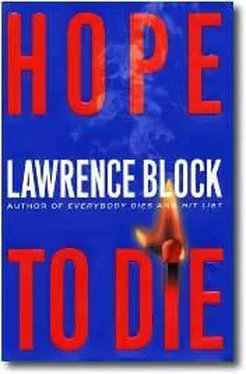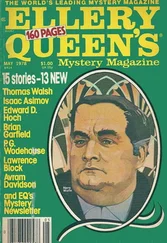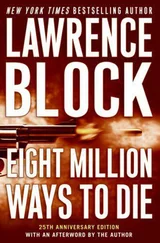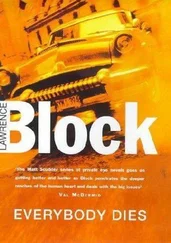Susan Hollander, sitting at her desk on the top floor of her brownstone, used her imagination to write her stories. I have read some of them, and they are dense, tightly crafted constructions, some set inNew York, some in the American West, at least one set in an unnamed European country. Her characters are at once introspective and, often, thoughtless and impulsive. They are, to my mind, not much fun to be around, but they are convincingly real, and they are clearly creatures of her imagination. She imagined them, and brought them to life upon the page.
One expects writers to use their imaginations, but that portion of the mind, of the self, is as much a part of the equipment of a policeman. A cop would be better off without a gun or a notebook than without an imagination. For all that detectives, private and public, deal in and count on facts, it is our capacity to reflect, to imagine, that points us to solutions. When two cops discuss a case they're working on, they talk less about what they know for a fact than what they imagine. They construct scenarios of what might have happened, and then look for facts that will support or knock down their constructions.
And so I have imagined the final moments of Byrne and Susan Hollander. Of course I have gone much farther in my imagination than I have felt it necessary to recount here. The facts themselves go farther than I've gone here- the blood spatters, the semen traces, the physical evidence painstakingly gathered and recorded and assessed by the forensic technicians. Even so, there are questions the evidence doesn't answer unequivocally. For example, which of the Hollanders died first? I've suggested that they shot Byrne Hollander before they raped his wife, but it could have been the other way around; the physical evidence allows for either scenario. Perhaps he had to watch her violation and hear her screams until the first bullet mercifully blinded and deafened him. Perhaps she saw her husband killed before she was seized and stripped and taken. I can imagine it either way, and have in fact imagined it every possible way.
Here is how I prefer to imagine it: Almost as soon as they are inside the house and the door is kicked shut, one of the men shoots Byrne Hollander three times, and he is dead before the third bullet enters his body, dead before he hits the floor. The shock alone is enough to induce an out-of-body experience in his wife, and Susan Hollander, disembodied, hovers somewhere near the ceiling and watches, emotionally and physically disconnected, while her body is abused on the floor below her. Then, when they cut her throat, that body dies, and the part of her that has been watching is drawn down that long tunnel that seems to be a part of all near-death experiences. There's a white light, and she's drawn into the light, and there she finds the people who loved her and are waiting for her. Her grandparents, of course, and her father, who died when she was a child. Her mother, who died just two years ago, and her son, of course, Sean. There's never been a day that she hasn't thought of Sean, and he's there now, waiting for her.
And her husband's there, too. They were only apart for a few minutes, really, and now they'll be together forever.
Well, that's how I prefer to imagine it. And it's my imagination. I guess I can do as I please with it.
Their daughter Kristin found the bodies. She'd spent the evening with friends inChelsea and was going to stay over at a girlfriend's apartment in London Terrace, but that would have meant wearing the same clothes to work in the morning or else running home first to change. A man she'd just met offered her a ride home, and she took it. It was a few minutes after one when he pulled up and double-parked in front of the house on West Seventy-fourth.
He was going to walk her to her door, but she stopped him. Still, he waited while she crossed the sidewalk and mounted the steps, waited while she used her key, waited until she was inside. Did he sense something? Probably not. I suspect it was habit, the way he was brought up: when you see a woman home, you wait until she's safely inside before you take your leave.
So he was still there, just about to pull away, when she reappeared in the doorway, her face a mask of horror. He killed the ignition and got out to see what was the matter.
The story broke much too late for the morning papers, but it was the lead item on the local news, so Elaine and I learned about it at breakfast. The gal on New York One reported that the victims had attended a concert atLincolnCenter that evening, so we knew we'd been there listening to the same music with them; what we didn't know then was that they'd been at the patrons' reception and dinner as well. It was unsettling to think we'd been in the same concert hall with them, along with several thousand other people; it would be more unsettling later to realize that we'd all been part of a considerably more intimate gathering.
The double murder was more than front-page news. It was, in journalistic terms, a wonderful story. The victims, a prominent attorney and a published writer, were decent, cultured people, murdered brutally in their own home. She'd been raped, always a bonus for the tabloid reader, and subjected to a second violation with the fireplace poker. In a less outspoken time than ours, that last detail would have been veiled. The police generally hold back something like that, to make it easier to screen false confessions, but this time the press got hold of it. The Times left it unreported, perhaps out of decency, and the TV news hinted at a further violation without getting specific, but the News and the Post showed no such restraint.
A police canvass of the area turned up a neighbor who had spotted two men leaving a house, probably the Hollander house, sometime after midnight and before one. She noticed their departure because each had a laundry bag slung over his shoulder. She didn't regard the sight as suspicious, never thinking they might be burglars, assuming instead that they were roommates, headed for the twenty-four-hour laundromat around the corner onAmsterdam. She remembered thinking that it was a shame young people had to work such long hours these days, and the only time they had to do their laundry was in the middle of the night.
The description she furnished was vague, and a session with a police artist led nowhere, as she had never gotten a clear look at their faces. They were, as she recalled, neither tall nor short, neither fat nor thin. She thought, although she couldn't swear to it, mind you, that one of them might have had a beard.
Forensics thought she might be right. They'd recovered a couple of hairs that had almost certainly come from a man's beard, and you didn't need a DNA check to know they weren't Byrne Hollander's, as he was clean-shaven.
According to the woman, it was possible that one of them limped. She remembered there was something awkward about his walk, attributing it at the time to the weight of the sack of laundry he was carrying. And maybe that's all it was, but maybe he'd been limping. She couldn't say for sure.
When you luck into a story that sells papers, you keep it on the front page whether or not there are any new developments. The Post showed the most imagination, actually running a sketch of the suspect with the headline HAVE YOU SEEN HIM LIMPING? It showed a man with a Mephistophelian beard and generally demonic facial features, a sack slung over his shoulder, furtively slouching. TowardAmsterdam Avenue, I suppose, if notBethlehem. The implication, of course, was that this was a police sketch, but it was no such thing. Some staff artist at the paper had cobbled it up to order and there it was on the front page, with the Post's readers urged to come up with a name to go with the imaginary face.
Читать дальше












